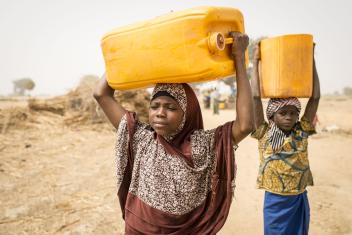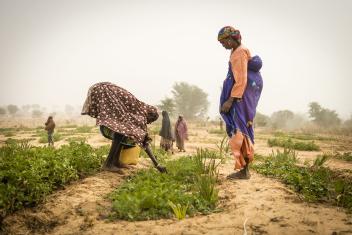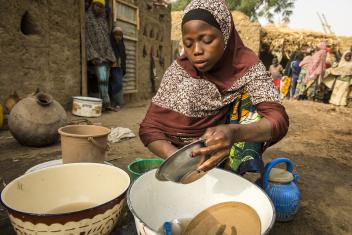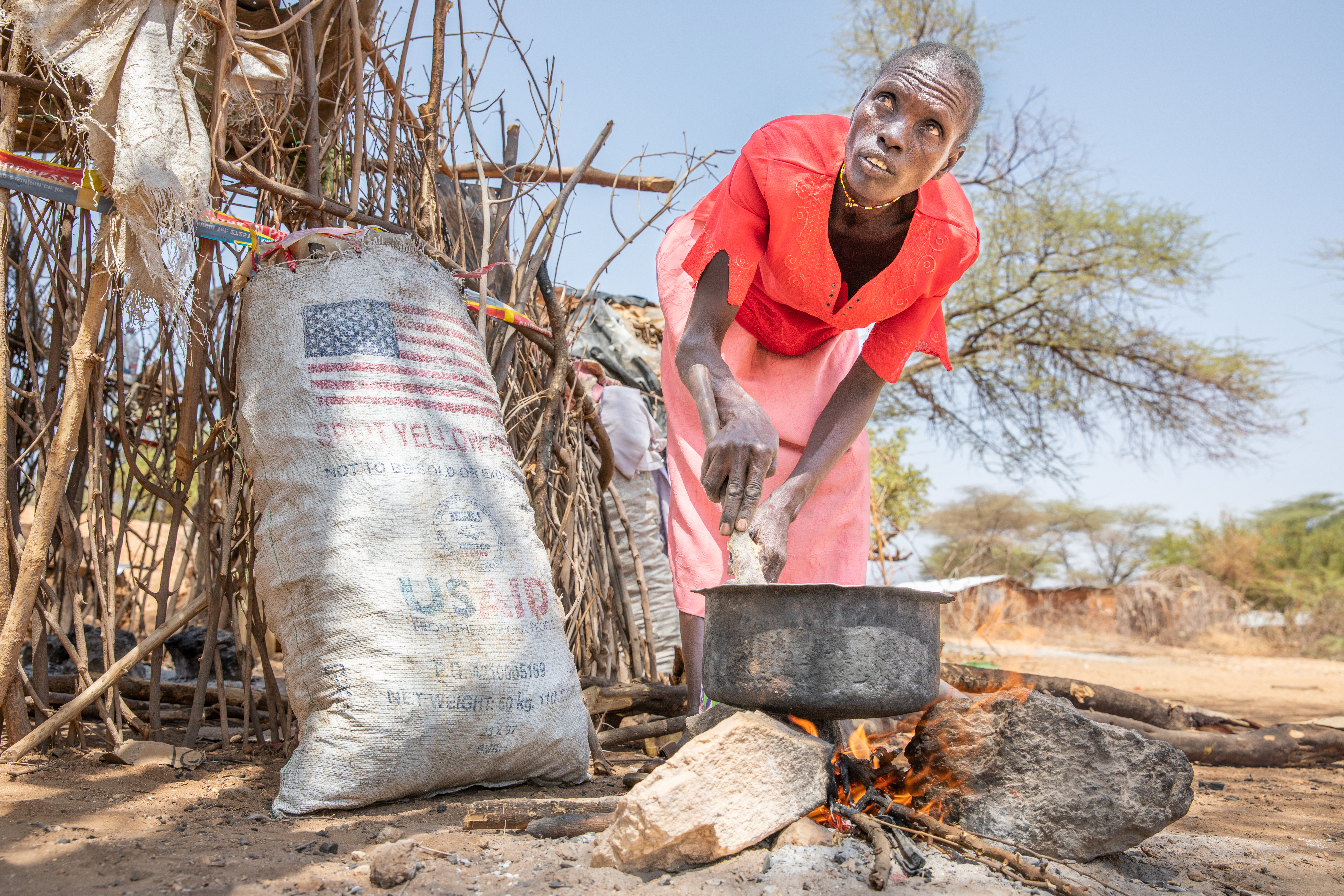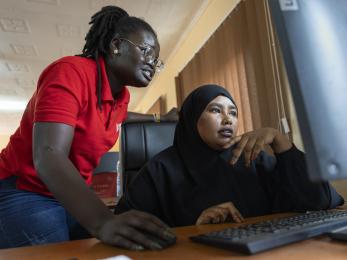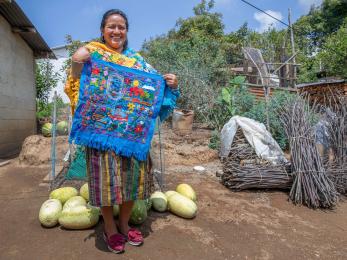Life of a girl: Spend the day with Badariya
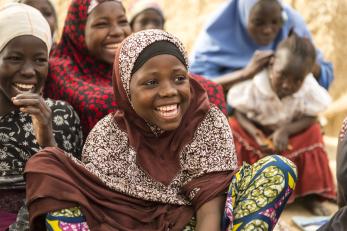
“I really want to go to school.”
Those are the first words that 13-year-old Badariya says when she walks up to me, a determined look on her young face.
Her village in Niger is a maze of mud walls and buildings baking in the West African desert sun. Earlier, we stepped inside one of the dusty courtyards and found the life of this place — 20 teenagers dressed in a riot of colorful, patterned fabrics and welcoming us to the Mercy Corps Girls Group with song.
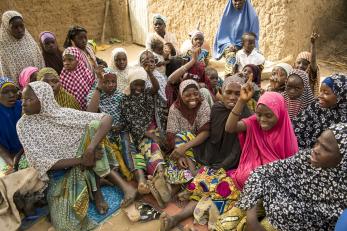
You can now find these groups in 62 villages around the region. Mercy Corps set up the safe spaces and trained female mentors from the community to meet twice a week with girls ages 11-18. There, they openly discuss new ideas about making healthy lifestyle choices, delaying marriage and childbirth, and learn lessons about financial and business skills.
The goal is to help these girls — the majority of whom don't attend school due to traditional gender beliefs and the time-consuming burden of housework — see their options for becoming strong, capable and equal members of their community.
It’s especially crucial here in Niger, where the average age of marriage is 15, and girls face many health risks associated with early pregnancy. Denied an education or way to earn an income, they become women who struggle to feed their families in a place that’s suffering from drought and food shortages more years than not.
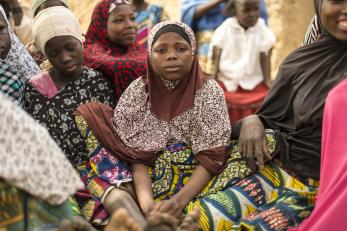
I noticed Badariya’s piercing brown eyes in the crowd at that first meeting, but it wasn’t until she sought me out to tell me her story that I heard her tenacious voice: “My parents think school does not benefit us girls, but I personally disagree. I think school is very good for everyone.” Watch and listen:
I spent the day with Badariya to better understand the challenges girls face in Niger — and so many of the world’s toughest places — and how we’re opening up new possibilities and supporting their fierce determination to build a different future. Follow along to get to know more of this smart, spirited girl:
Twice a week
Since Mercy Corps started the Girls Group in Badariya’s village, her parents have allowed her to take a break from her chores and attend the meetings twice a week. After longing for learning her whole life, this is the first opportunity she’s had to expand her knowledge and find confidence in her own voice.
“Before the group, I could not express myself freely. The group has helped me open up and discuss important topics,” she says, “like early marriage, which can bring many problems such as having complications with early pregnancy. Now I know I can say no to my dad if I feel I am not old enough to get married.”
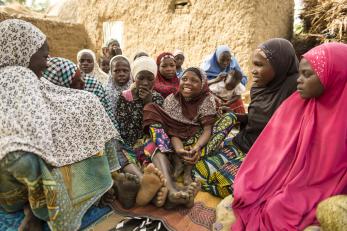
“I also learn about microfinanace,” she explains and starts retelling a story they were told in the group — the story of a young woman that helps Badariya imagine a different future for herself and understand even the small decisions she can make to bring about change.
“Hawa received 6,000 CFA (about $11.50 USD) and started a business with her mother, and they made more money. Then her friends tried to influence her to make bad decisions, like spending the money on a cell phone and getting her hair braided. But she refused. She told her friends she wants to go to school, and when she finishes school, she can have a job, prioritize things, make good decisions in her life and have all those things. Education can change people’s lives.”
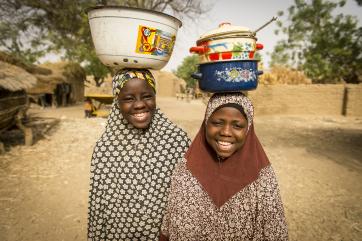
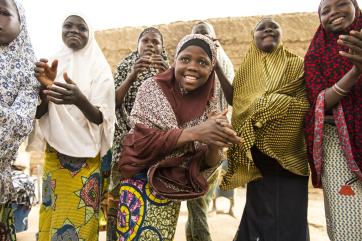
Badariya doesn’t keep these new ideas to herself. “Now anytime I see my best friend at the well, we spend hours discussing what I learned at the group. That benefits my friend also.”
Niger has a rich tradition of female mentorship, and Mercy Corps' Girls Groups build on a strength in the community that already existed — women passing down knowledge to the next generation. Badariya will, without a doubt, be one of those leaders and stand up for the girls that come after her. “I want to teach other children what I’ve learned,” she says. “I want to be a teacher.”
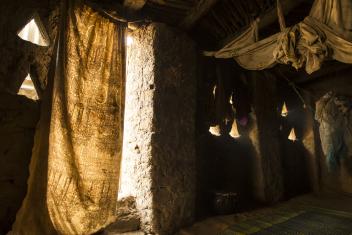
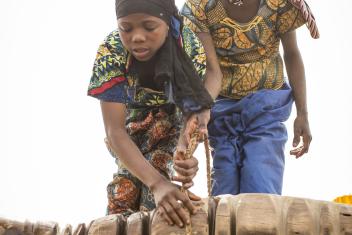
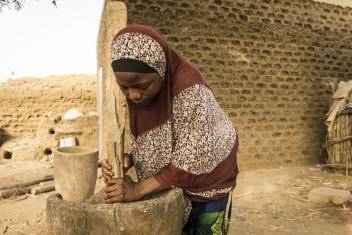
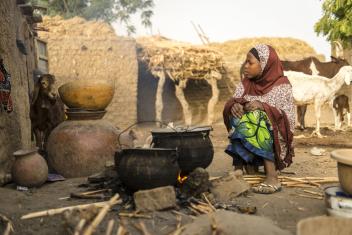
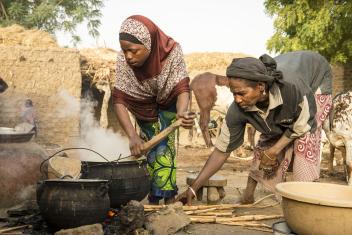
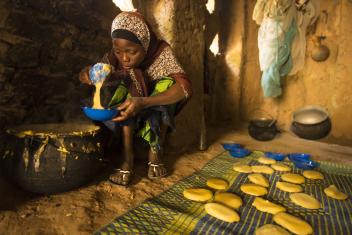
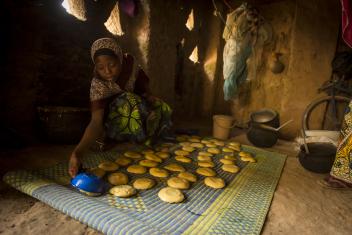
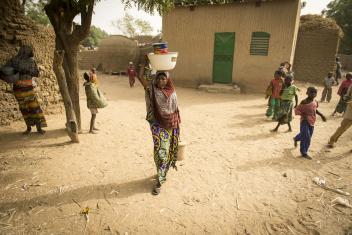
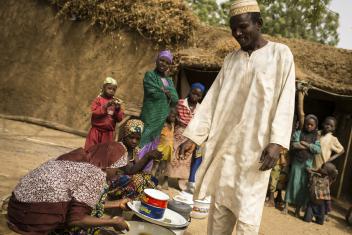
![On a good day she can earn about 1,000 CFA (about $2 USD), which she brings home to her parents. But she dreams of school. "I can do any kind of job I want with an education. I don’t know how to write, but I understand a little when someone speaks French [the official language taught at school]. My little brother is very smart, and I listen when his friends come to our house to study with them. If they make fun of me in French, I understand.”](/sites/default/files/styles/slide_small_1x/public/2020-02/niger-201402-ssheridan-2281-2048px%20Wide%20-%20Presentations_Documents.jpg?h=76ac0cdd&itok=yoW2SHLU)
